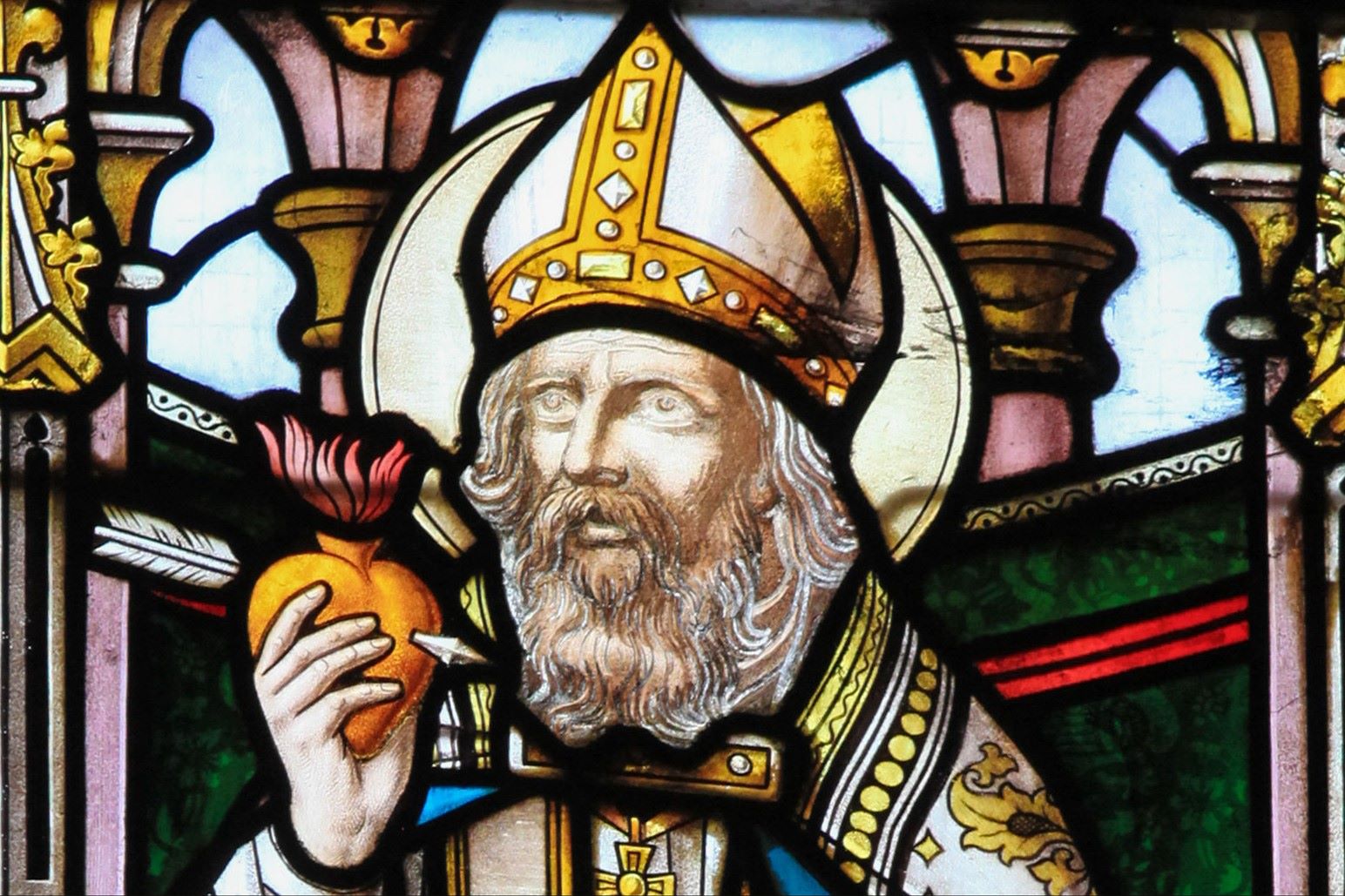Home>Theology and Spirituality>What Did John The Baptist Say About Jesus


Theology and Spirituality
What Did John The Baptist Say About Jesus
Published: February 23, 2024
Peter Smith, Editorial Director at Christian.net, combines deep insights into faith, politics, and culture to lead content creation that resonates widely. Awarded for his contributions to religious discourse, he previously headed a major organization for religious communicators, enhancing dialogue on faith's societal impacts.
Discover what John the Baptist said about Jesus and explore the theological significance of his words. Gain insights into spirituality and theology.
(Many of the links in this article redirect to a specific reviewed product. Your purchase of these products through affiliate links helps to generate commission for Christian.net, at no extra cost. Learn more)
Table of Contents
Introduction
John the Baptist, a pivotal figure in the Christian narrative, played a significant role in preparing the way for the ministry of Jesus Christ. His testimony about Jesus provides profound insights into the identity and purpose of the Messiah. Through his words and actions, John the Baptist laid the groundwork for the transformative impact of Jesus' ministry, leaving an indelible mark on the spiritual landscape of Christianity.
As we delve into John the Baptist's testimony of Jesus, we gain a deeper understanding of the profound significance of his words and the impact they had on those who encountered them. His unwavering conviction and prophetic insight serve as a powerful testament to the divinity of Jesus and the fulfillment of ancient prophecies. Let us embark on a journey to explore the profound declarations of John the Baptist regarding Jesus, unraveling the timeless truths that continue to resonate with believers around the world.
John the Baptist's Testimony of Jesus
John the Baptist's testimony of Jesus stands as a cornerstone of Christian faith, illuminating the profound impact of Jesus' ministry and his divine purpose. As a herald of the Messiah, John the Baptist fearlessly proclaimed the arrival of Jesus, heralding a message of repentance and spiritual renewal. His unwavering conviction and prophetic insight continue to resonate through the ages, offering timeless wisdom and inspiration to believers.
John the Baptist's testimony of Jesus transcends mere historical documentation; it embodies a profound spiritual revelation. His declaration, "Behold, the Lamb of God, who takes away the sin of the world!" encapsulates the essence of Jesus' redemptive mission. By identifying Jesus as the sacrificial Lamb, John the Baptist foreshadowed the atoning significance of Jesus' ultimate sacrifice, emphasizing the transformative power of his impending ministry.
Furthermore, John the Baptist's proclamation that Jesus is "the one who baptizes with the Holy Spirit" underscores the spiritual authority and divine empowerment inherent in Jesus' ministry. This declaration not only highlights Jesus' role as the conduit for spiritual rebirth but also foreshadows the outpouring of the Holy Spirit upon believers following Jesus' ascension. Through these words, John the Baptist heralded the dawn of a new era, characterized by spiritual regeneration and divine communion.
Additionally, John the Baptist's affirmation of Jesus as "the Son of God" serves as a profound testament to Jesus' divine nature and eternal significance. By acknowledging Jesus' divine filiation, John the Baptist affirmed the transcendent nature of the Messiah, laying the groundwork for the profound theological understanding of Jesus as the Son of God. This declaration resonates with profound implications, affirming Jesus' unique relationship with the Father and his pivotal role in the redemption of humanity.
In essence, John the Baptist's testimony of Jesus encapsulates the essence of Christian faith, illuminating the transformative power and divine purpose embodied in the ministry of Jesus. His prophetic declarations serve as a timeless testament to the redemptive mission of Jesus, inspiring believers to embrace the profound truths embedded within his testimony. Through John the Baptist's unwavering conviction and prophetic insight, we are invited to behold the profound significance of Jesus' ministry and embrace the transformative power of his redemptive work.
The Lamb of God
John the Baptist's proclamation, "Behold, the Lamb of God, who takes away the sin of the world!" encapsulates the essence of Jesus' redemptive mission. This profound declaration resonates with deep theological significance, echoing the ancient sacrificial imagery deeply rooted in Jewish tradition. The symbolism of the lamb as a sacrificial offering permeates the Old Testament, foreshadowing the ultimate atonement to be fulfilled in Jesus Christ.
In the Old Testament, the sacrificial lamb served as a central element in the religious rituals of atonement and reconciliation. The Book of Exodus recounts the institution of the Passover, where the blood of a spotless lamb served as a protective sign, shielding the Israelites from the angel of death. This pivotal event not only secured the liberation of the Israelites from bondage but also prefigured the redemptive work of Jesus as the ultimate Passover Lamb.
Furthermore, the prophetic imagery of the suffering servant in Isaiah 53 portrays a poignant depiction of the sacrificial lamb, foretelling the redemptive suffering and atoning significance embodied in Jesus' earthly ministry. The profound parallels between the sacrificial lamb of the Old Testament and the redemptive role of Jesus as the Lamb of God converge to form a cohesive narrative of divine atonement and spiritual deliverance.
John the Baptist's proclamation of Jesus as the Lamb of God signifies the culmination of the sacrificial typology embedded in Jewish tradition, heralding the arrival of the ultimate atoning sacrifice. Through this declaration, John the Baptist not only identified Jesus as the fulfillment of ancient prophecies but also illuminated the transformative power of his impending ministry. The sacrificial imagery embodied in the concept of the Lamb of God underscores the redemptive purpose of Jesus' mission, emphasizing the profound impact of his atoning sacrifice on humanity's spiritual destiny.
In essence, John the Baptist's proclamation of Jesus as the Lamb of God serves as a profound testament to the redemptive mission of the Messiah, encapsulating the transformative power of his atoning sacrifice. This declaration resonates with timeless significance, inviting believers to behold the profound symbolism of Jesus as the ultimate sacrificial Lamb, whose redemptive work transcends temporal boundaries and offers eternal reconciliation to all who embrace his redemptive message.
The One Who Baptizes with the Holy Spirit
John the Baptist's proclamation that Jesus is "the one who baptizes with the Holy Spirit" holds profound significance, transcending the traditional understanding of baptism and illuminating the transformative power of spiritual rebirth. This declaration not only underscores Jesus' role as the conduit for spiritual regeneration but also foreshadows the outpouring of the Holy Spirit upon believers following Jesus' ascension.
The concept of baptism with the Holy Spirit represents a spiritual immersion, signifying a profound inward transformation and empowerment. In the Jewish tradition, baptism was associated with ritual purification and repentance, symbolizing the cleansing of impurities and the readiness for spiritual renewal. However, John the Baptist's proclamation introduces a revolutionary paradigm shift, emphasizing the spiritual baptism facilitated by Jesus, which transcends the confines of traditional ritualistic practices.
The imagery of baptism with the Holy Spirit embodies the infusion of divine grace and empowerment, signifying a radical inward renewal and the indwelling of the Holy Spirit within the believer. This transformative baptism transcends the external ritual of water baptism, representing a profound spiritual union with the divine that imparts spiritual gifts, empowerment, and a deepened communion with God.
Furthermore, the fulfillment of John the Baptist's prophecy is realized in the Book of Acts, where the outpouring of the Holy Spirit upon the early believers on the day of Pentecost signifies the manifestation of Jesus' promise to baptize with the Holy Spirit. This transformative event marked the inception of a new era, characterized by the indwelling presence of the Holy Spirit within the community of believers, empowering them for the proclamation of the Gospel and the establishment of the early Christian church.
The significance of Jesus as "the one who baptizes with the Holy Spirit" extends beyond a mere symbolic gesture; it embodies the inauguration of a new covenant, characterized by the inward transformation and empowerment of believers through the indwelling presence of the Holy Spirit. This profound declaration by John the Baptist foreshadows the transformative impact of Jesus' ministry, inviting believers to embrace the profound reality of spiritual rebirth and divine empowerment facilitated by the Messiah.
In essence, John the Baptist's proclamation of Jesus as "the one who baptizes with the Holy Spirit" serves as a profound testament to the transformative power of spiritual rebirth and divine empowerment inherent in Jesus' ministry. This declaration resonates with timeless significance, inviting believers to embrace the profound reality of spiritual baptism and the indwelling presence of the Holy Spirit, which continues to empower and transform the lives of believers across generations.
The Son of God
John the Baptist's affirmation of Jesus as "the Son of God" stands as a profound testament to the divine nature and eternal significance of the Messiah. This declaration resonates with deep theological implications, encapsulating the transcendent relationship between Jesus and the Father, and affirming his pivotal role in the redemption of humanity.
The title "Son of God" holds multifaceted significance within the Christian theological framework. It signifies not only Jesus' divine filiation but also his unique identity as the second person of the Trinity. The proclamation of Jesus as the Son of God echoes the profound truth of his preexistence and eternal coexistence with the Father, underscoring the timeless nature of his divine essence.
Furthermore, the title "Son of God" embodies the Messianic expectations deeply rooted in Jewish tradition. In the Old Testament, the concept of the divine Sonship is intricately woven into the prophetic anticipation of the coming Messiah. The Psalms and the prophetic writings depict the future King as the begotten Son of God, destined to establish an everlasting kingdom and bring about the redemption of humanity.
Moreover, the affirmation of Jesus as the Son of God carries profound salvific implications. It signifies the divine agency and redemptive mission entrusted to Jesus as the incarnate Son of God. Through his divine Sonship, Jesus embodies the reconciliatory bridge between humanity and the divine, offering the gift of salvation and eternal life to those who embrace his redemptive message.
The significance of Jesus as the Son of God extends beyond a mere title; it embodies the profound reality of his divine nature and redemptive purpose. His divine Sonship serves as the cornerstone of Christian faith, illuminating the transcendent nature of his identity and the transformative impact of his redemptive work.
In essence, John the Baptist's affirmation of Jesus as the Son of God serves as a profound testament to the divine nature and eternal significance of the Messiah. This declaration resonates with timeless significance, inviting believers to behold the profound truth of Jesus' divine Sonship and embrace the transformative power of his redemptive mission.
Read more: What Does Jesus Say About John The Baptist
Conclusion
In conclusion, John the Baptist's testimony of Jesus encapsulates the profound significance of the Messiah's redemptive mission and divine identity. His declarations, including "Behold, the Lamb of God, who takes away the sin of the world," "the one who baptizes with the Holy Spirit," and "the Son of God," resonate with timeless theological and spiritual implications. Through his unwavering conviction and prophetic insight, John the Baptist heralded the transformative impact of Jesus' ministry, laying the groundwork for the fulfillment of ancient prophecies and the establishment of a new covenant.
The proclamation of Jesus as the Lamb of God signifies the culmination of the sacrificial typology deeply rooted in Jewish tradition, emphasizing the atoning significance of Jesus' redemptive work. This declaration foreshadows the transformative power of Jesus' atoning sacrifice, offering eternal reconciliation and spiritual deliverance to all who embrace his redemptive message.
Furthermore, John the Baptist's affirmation of Jesus as "the one who baptizes with the Holy Spirit" introduces a revolutionary paradigm shift, emphasizing the transformative power of spiritual rebirth and divine empowerment facilitated by the Messiah. This proclamation heralds the dawn of a new era, characterized by the indwelling presence of the Holy Spirit and the empowerment of believers for the proclamation of the Gospel.
Additionally, the affirmation of Jesus as "the Son of God" embodies the transcendent nature of the Messiah's divine identity and redemptive mission. This declaration underscores the profound truth of Jesus' preexistence and eternal coexistence with the Father, affirming his pivotal role in the reconciliation of humanity with the divine.
In essence, John the Baptist's testimony of Jesus serves as a timeless testament to the transformative power and eternal significance of the Messiah's ministry. His prophetic declarations continue to resonate through the annals of Christian faith, inviting believers to embrace the profound truths embedded within his testimony and to behold the transformative power of Jesus' redemptive work. As we reflect on John the Baptist's testimony, we are invited to embrace the profound reality of Jesus' divine identity and redemptive mission, allowing his timeless message to permeate our hearts and illuminate our spiritual journey.














